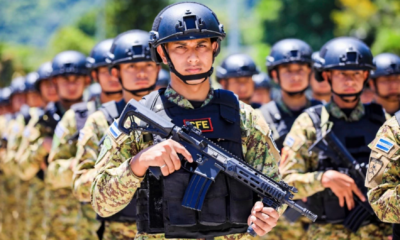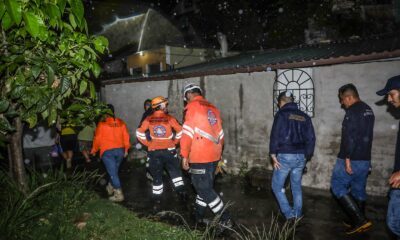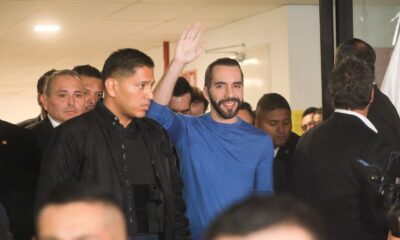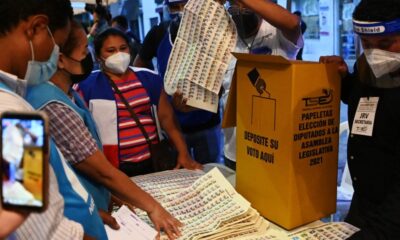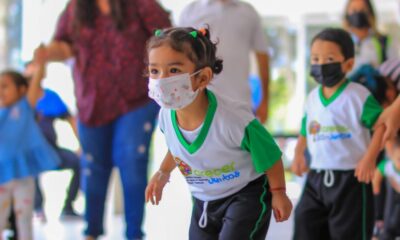Central America
Security fences in El Salvador prevented gangs from regrouping
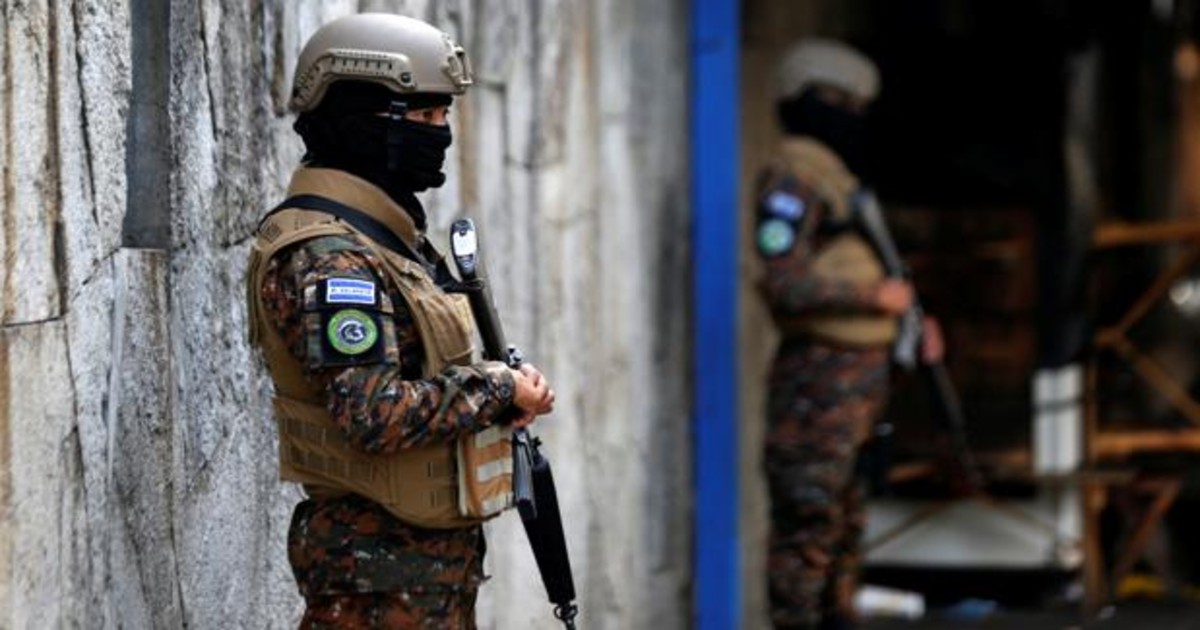
May 1 |
In addition to providing security to the population and putting criminals behind bars, the security fences implemented in El Salvador, specifically in Soyapango, Tutunichapa and La Granjita as phase 5 of the Territorial Control Plan (PCT), have prevented gangs from regrouping, according to Defense Minister René Merino Monroy.
“Through the military fences we have prevented the gangs from regrouping and thus guaranteeing the security of the population. Now we have given the population peace of mind, so that they can move around in peace,” said Merino Monroy.
The security fences are part of the PCT’s “Extraction” phase, which was launched in November of last year and aims to remove all gang members who continue to commit crimes in neighborhoods and colonias. The authorities carried out the same type of siege that was implemented in Comasagua, La Libertad, last year, where 2,000 soldiers and police were deployed in search of the murderers of a farm caretaker who was a victim of extortion. For the time being, these fences remain permanent in Soyapango and the communities of Tutunichapa and La Granjita in San Salvador.
“This phase has two elements, one is the extraction and the other is, based on what has been learned during the regime, to fence off large areas while the gang members are being extracted,” said the President of the Republic, Nayib Bukele during the launch of this phase.
In December 2022, a contingent of 8,500 soldiers and 1,500 police officers were deployed in Soyapango to encircle the entire municipality. The Minister of Defense has detailed that so far more than 1,400 gang members have been captured in this area alone and this has led to a drastic reduction in homicides in the area. In addition, the authorities have recovered more than 1,000 homes that were usurped by gangs in neighborhoods such as La Campanera, Monte Blanco, Las Margaritas and the 22 de Abril community, among others, considered highly dangerous in Soyapango.
La Tutunichapa and La Granjita were also surrounded in December last year. More than 1,000 soldiers and 100 police were distributed in both communities in search of gang members. The presence of the security forces has led to a decrease in crime, including drug trafficking, as these areas were characterized by the retail sale of narcotics. To date there have been more than 350 arrests in both communities, according to the police; in addition, drug trafficking has been hit hard. In just the first two weeks after the fences were implemented, more than seven kilos of drugs, including cocaine, marijuana and crack, had been seized.
The security that now exists in these two communities has changed the lives of the inhabitants. New businesses have been established in the areas and institutions such as the Ministry of Public Works (MOP), the Ministry of Health, the Social Housing Fund, the Mortgage Bank and the Consumer Protection Agency have come forward to offer their services to the inhabitants. Even the Ministry of Agriculture has been holding “agromarkets”.
The implementation of the security fences together with the execution of the exception regime has allowed that in the last year the gangs have been dismantled, capturing more than 68,000 gang members, among them leaders and collaborators, in addition, 3,571 vehicles, 2,698 firearms and 16,437 cell phones have been seized from these structures.
These measures, which are focused on curbing criminal activity, have been viewed positively by the Salvadoran population. The security forces, deployed by the emergency regime and as part of the PCT, have been supported by Salvadorans. Providing food, giving a place to rest and verbally expressing gratitude are some of the actions with which the population expresses the work of soldiers and police.
Central America
Guatemala Police Arrest Prison Guard Caught in the Act of Extortion
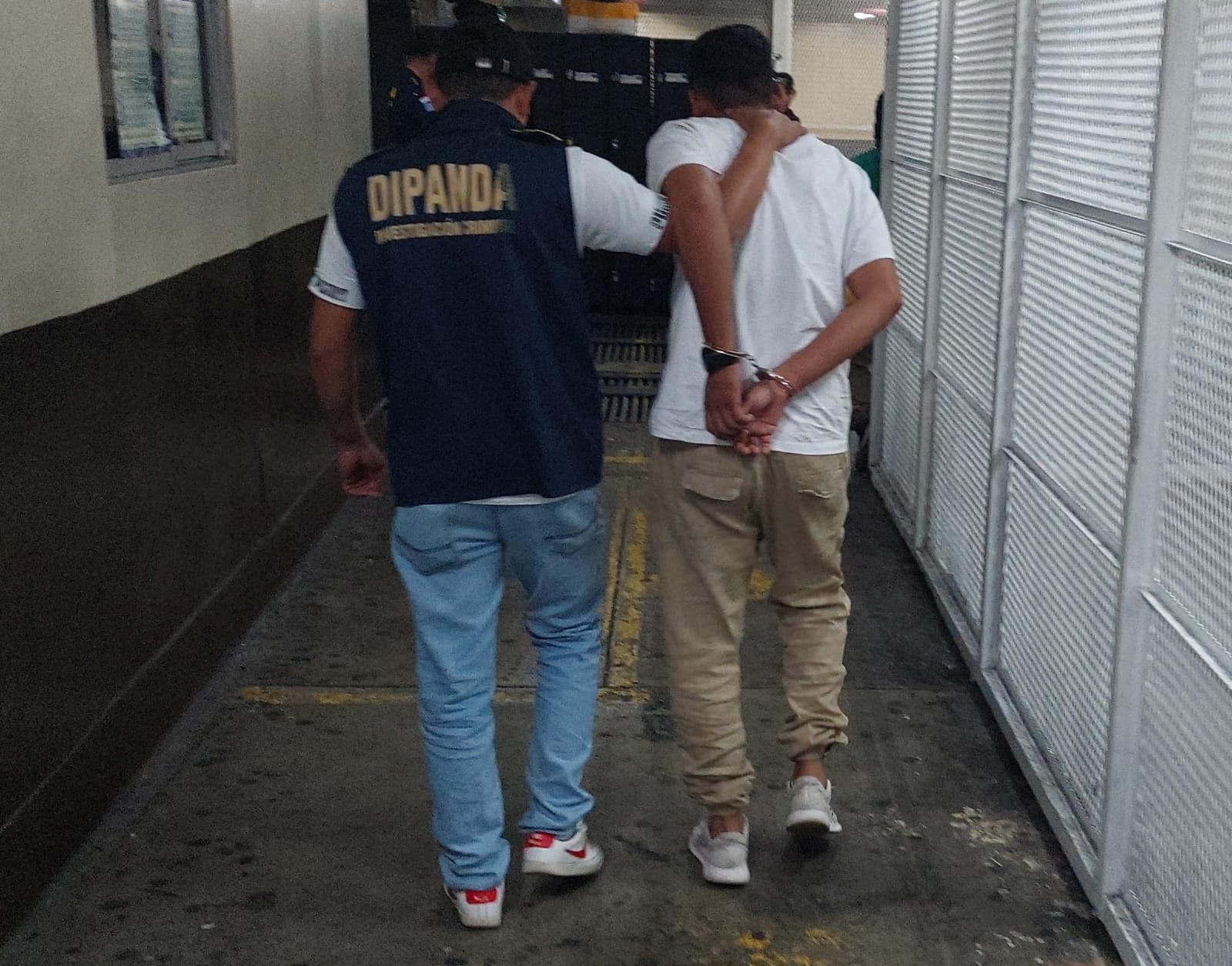
Guatemala’s National Civil Police (PNC) arrested a suspected extortionist in the act during an operation carried out in the department of Quiché, authorities reported.
According to the police report, the arrest took place in Zone 1 of Santa Cruz del Quiché after officers responded to a citizen complaint. Agents from Precinct 71 identified the suspect as Encarnación “N”, 41, who was serving as a guard in the Guatemalan Penitentiary System.
The suspect was caught while attempting to collect a package simulating an extortion payment totaling 25,000 quetzales. Police intervened at the precise moment the money was being handed over, allowing authorities to document the crime in flagrante delicto.
Following the operation, the detainee was placed at the disposal of the competent courts to face criminal proceedings.
The PNC emphasized that such operations aim to dismantle criminal structures involved in extortion, regardless of whether those implicated are linked to state institutions, and urged the public to continue reporting these crimes through confidential channels.
Central America
Honduras swears in conservative president Asfura after disputed election

Conservative politician Nasry Asfura assumed the presidency of Honduras on Tuesday with an agenda closely aligned with the United States, a shift that could strain the country’s relationship with China as he seeks to confront the economic and security challenges facing the poorest and most violent nation in Central America.
Asfura’s rise to power, backed by U.S. President Donald Trump, marks the end of four years of left-wing rule and secures Trump another regional ally amid the advance of conservative governments in Chile, Bolivia, Peru, and Argentina.
The 67-year-old former mayor and construction businessman was sworn in during an austere ceremony at the National Congress, following a tightly contested election marred by opposition allegations of fraud and Trump’s threat to cut U.S. aid if his preferred candidate did not prevail.
Grateful for Washington’s support, Asfura—who is of Palestinian descent—traveled to the United States to meet with Secretary of State Marco Rubio, before visiting Israeli Prime Minister Benjamin Netanyahu.
“We need to strengthen relations with our most important trading partner,” Asfura said after being declared the winner of the November 30 election by a narrow margin, following a tense vote count that lasted just over three weeks.
Central America
Bukele leads public trust rankings as UCA survey highlights gains in security
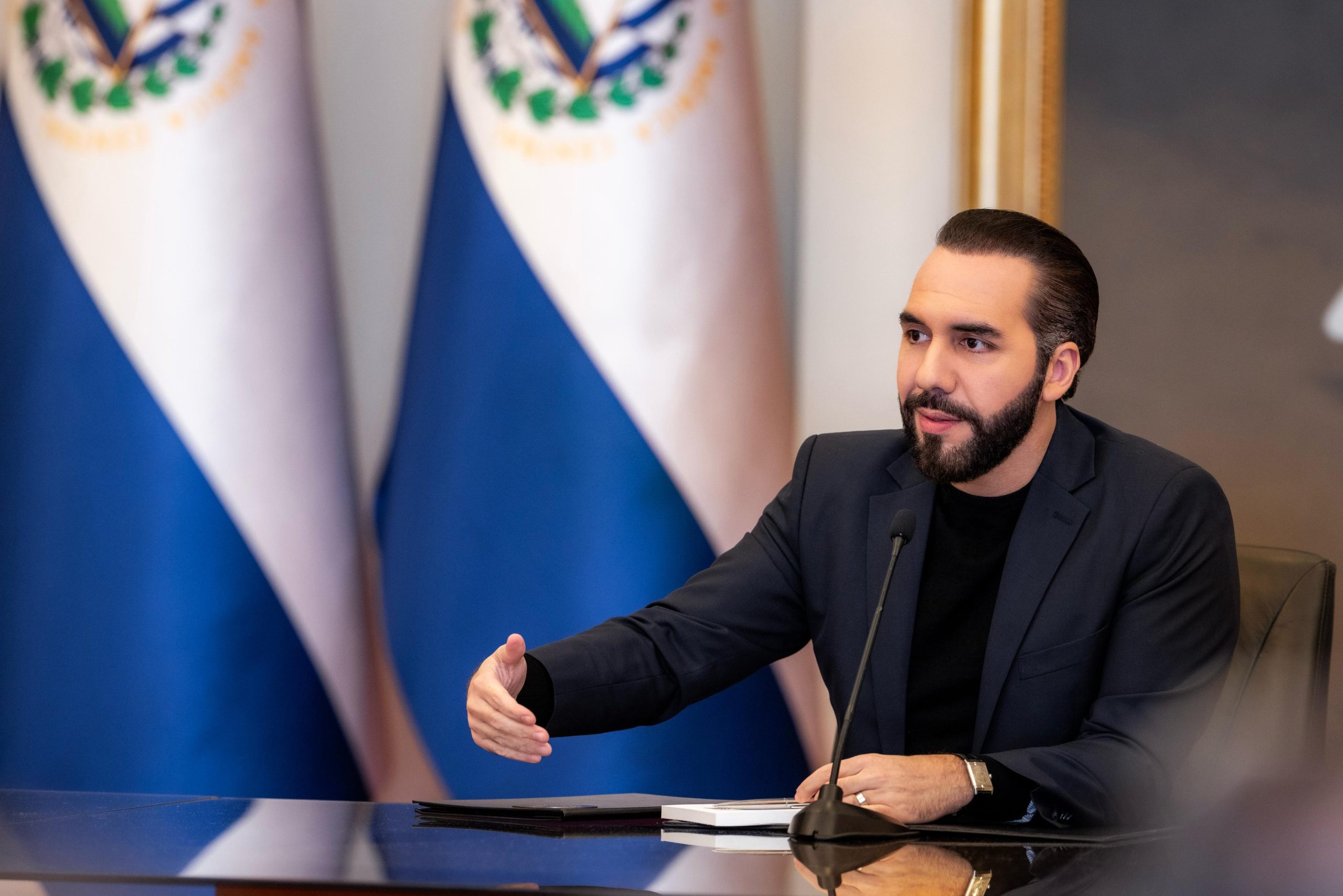
Results from the UCA Survey, conducted by the José Simeón Cañas Central American University (UCA), were presented on Tuesday, offering an assessment of the performance of the Government of El Salvador during 2025 and measuring public perception on key issues such as security and the economy.
According to the survey, President Nayib Bukele received an average score of 8.39 for his performance in 2025. In the category measuring levels of trust in national institutions and social actors, Bukele led the ranking with 77% public confidence, surpassing the Central Government (69.6%), the Armed Forces (69.1%), the National Civil Police (PNC), and the Catholic Church (58.4%), among others.
The survey also highlights an upward trend in the president’s evaluation. While Bukele scored 8.15 for his performance in 2024, the most recent assessment of his sixth year in office showed an increase to 8.39.
Meanwhile, the Government of El Salvador as a whole was rated 8.33 for its performance during 2025.
Respondents identified public security as the area showing the greatest progress in the country, with 62.7% recognizing improvements in this sector, according to the UCA survey released on Tuesday.
-

 Central America4 days ago
Central America4 days agoGuatemala’s president rules out negotiations with inmates after prison riots
-

 Central America1 day ago
Central America1 day agoGuatemala seizes over a ton of cocaine hidden in flour at Pacific port
-

 International3 days ago
International3 days agoTrump-Era Defense Plan Prioritizes Border Security and Scales Back Global Commitments
-

 Internacionales4 days ago
Internacionales4 days agoMajor winter storm threatens “catastrophic” ice and snow across much of the U.S.
-

 International3 days ago
International3 days agoBogotá and Quito Seek Dialogue After Tariffs and Power Cut Escalate Tensions
-

 International4 days ago
International4 days agoGuatemala considers sending high-risk gang members to military prisons
-

 International2 days ago
International2 days agoDelcy Rodríguez seeks political agreements after Maduro’s ouster
-

 International1 day ago
International1 day agoHistoric snowstorm paralyzes Toronto after 60 centimeters of snow
-

 International1 day ago
International1 day agoSpain’s irregular migrant population rises to 840,000, study finds
-

 International2 days ago
International2 days agoFederal immigration agents kill man in Minneapolis, sparking protests and outrage
-

 International4 days ago
International4 days agoRights group says over 5,000 killed in Iran protests, mostly civilians
-

 International1 day ago
International1 day agoRights group says nearly 6,000 killed in Iran protest crackdown
-

 Central America3 hours ago
Central America3 hours agoGuatemala Police Arrest Prison Guard Caught in the Act of Extortion
-

 International1 day ago
International1 day agoVenezuela frees at least 80 political prisoners, NGO says
-

 International1 day ago
International1 day agoEU launches new probe into X over AI-generated fake nude images
-

 International4 hours ago
International4 hours agoDoomsday clock moves to 85 seconds before midnight amid rising global risks
-

 Sin categoría3 hours ago
Sin categoría3 hours agoEight Killed in Series of Armed Attacks in Ecuador’s Manabí Province
-

 Central America4 hours ago
Central America4 hours agoBukele leads public trust rankings as UCA survey highlights gains in security
-

 Central America4 hours ago
Central America4 hours agoHonduras swears in conservative president Asfura after disputed election
-

 International3 hours ago
International3 hours agoSpain approves plan to regularize up to 500,000 migrants in Historic Shift
-

 International3 hours ago
International3 hours agoWinter Storm Fern Leaves 30 Dead and Over One Million Without Power Across the U.S.
-

 Sin categoría3 hours ago
Sin categoría3 hours agoEl Salvador Launches Fourth Year of Ocean Mission to Protect Marine Ecosystems
-

 International1 day ago
International1 day agoSevere winter storm grips U.S., leaves multiple dead as extreme cold persists
-

 International1 day ago
International1 day agoFrance debates ban on social media for children under 15



















































































